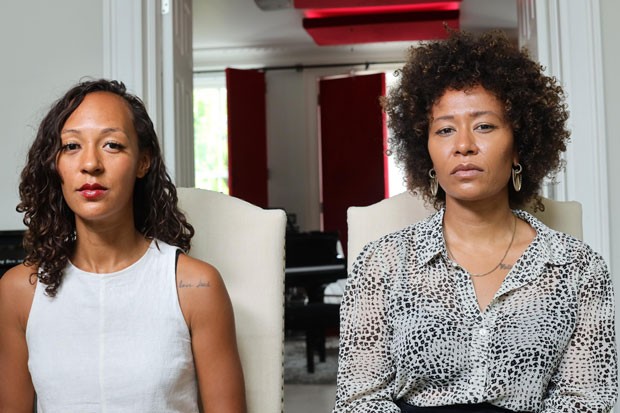
Social class systems have always existed, impeding on the quality of life of those entrapped in the “lower class”. Although it is debatable as to how the class system works and what it is based on, the term “class” tends to provoke discussion around economic status and is portrayed as something that one can transcend if they work hard enough. However, a “caste system”, a term most commonly associated with the Indian sub-continent, determines someone’s opportunities from birth. It is a closed system based on hereditary factions, determining a person’s economic status, as well as social and personal opportunities.
A less frequently discussed caste system is that of the Middle East’s. Although it is not referred to as such, there is a clear preference towards Middle Easterners with fairer, Eurocentric features. This discrimination, referred to as “colourism”, has resulted in institutional and social racism.
The negative attitude towards dark skin, and the need to disassociate Middle Easterners from it, derives from attitudes towards African people. I made many friends of African descent for various reasons, including the similarities in our cultures and beliefs. Arabic was a compulsory lesson at my friend’s school in Ethiopia, so she spoke it fluently. It was interesting that Middle Eastern culture had influenced her life.
Having lived in the UK for my entire life, I learnt so much from her. As we spent more time together, I learnt other things. I learnt that the word “abd”, a word used for African and dark-skinned people in general meaning “slave”, is still commonplace in conversations. I felt pangs of embarrassment and shame. I thought there was an alliance between the African and Middle Eastern regions due to many shared struggles, shared traditions and religions. I understood now that the Middle East had influence over her life because of Arab colonialism. I became aware of the Arab slave trade and the current slave labour in the UAE, which targets African and dark-skinned people. The majority of the labourers and domestic workers in strenuous, unmonitored roles in the UAE are of African, Yemeni, and South Indian descent and the legislation to protect those labourers is seldom enforced. A clear message is sent out regarding the status of dark skin in that region.
The slave trade has ingrained the idea that black skin is sub-human. Consequently, dark-skinned Arabs are also ostracised. Colourism in the Middle East is rarely discussed amongst Middle Easterners, but it stems from racism and is equally as oppressive and dilapidating to victims of it.
Why wasn’t I aware of these issues before? Because no one spoke of them.
I became all too aware of colourism amongst Arabs as a young adult with Yemeni heritage. The Arab world has been in turmoil for over two decades and the rhetoric in the Middle East as a whole always revolved around resources and invasions. No one spoke about the social issues that prevented its society from moving forward. Only as I grew older and experienced this racism, or colourism, first hand, did I research these issues further.
When I have had the opportunity to explain my Yemeni heritage, I have been met with grunts and dismissals because “Yemeni” is the wrong type of Arab to be. It is the seventh poorest country in the world and many inhabitants are dark skinned with coarse, curly hair. The Al-Akhdam tribe of Yemen are deemed the lowest class, because they are black. This is not the Arab to be in the Arab world. I have heard my peers voice their preferences for certain types of Arabs whilst disliking others, and there is usually a distinct difference in colour between the liked and disliked. My grandfather often tells the story of how he was chosen to be the worker out of his 12 siblings. He was not the eldest, the strongest or the dimmest; he was, however, the darkest. He told of how he often helped his brothers with their homework even though he had not been allowed to attend school, but they had. He had instead been sent out to work for the family although he showed much academic promise.
Many inhabitants of the Middle Eastern regions have dark skin and curly hair. The term “black Arab” could refer to someone of mixed African and Arab heritage or someone who is a dark-skinned Arab. In the modern world, of the 22 countries that categorise themselves as “Arab”, 8 have predominantly dark-skinned inhabitants and the others contain black Arabs. Within the Middle East, the Arab world in particular has been ravished by Western invasions, and the consequences of the wars are further compounded by the civil and tribal contempt amongst the Arabs themselves. There seems to be a genetic celebration of the atrocities inflicted by colonists. Invalidating and disregarding black Arabs only validates colonialist goals. Colonising the mind was the most detrimental effect of colonialism, allowing self-hate to thrive and live on even after independence.
Religion may not be a part of every Middle Eastern’s life, but the dominant Islamic religion does have major influence in the laws of Middle East countries. Islam is the influence for the dress code and marital laws in the Middle East. However, the anti racist values of Islam clearly have no standing in the region. Another example of racism faced by my grandfather by a fellow Arab demonstrates how ingrained and time-hallowed this mentality is. For the duration of his 74 years, my grandfather’s skin colour has been an issue to other Arabs. When he attended an event centred around Middle Eastern relations, an attendee became intoxicated and decided that my grandfather was “not Arab, maybe African, but not Arab!” The words may sound like innocent pondering, but to deny someone of their Arab heritage and claim they are African (or Indian) is actually seen as an insult, which underlines a huge problem.
Fully acknowledging the illogical views that determine many people’s life opportunities is saddening. Ignoring this particular matter seems to be justified by the fact that Middle Eastern society is already currently demonised and people are facing conflict. Nevertheless, keeping quiet is not only morally wrong, it will also keep Middle Eastern society static. This one problem accounts for so many other issues within the Middle Eastern region; it affects human rights, national and international relations, and worst of all, it is a disease of the mind. I understand that not every individual Middle Easterner holds these views, but racism is prevalent enough to hurt dark-skinned people within the region and prevent Middle Eastern society from prospering.
Our generation must speak out. We should talk about colour. Admitting cultural downfalls is not self hate or degrading to oneself. It’s easy to ignore criticisms from others, but having Middle Easterners pushing for change in the Middle East will be the catalyst for permanent change.
We must acknowledge and accept the various shades of Arab, we must accept every shade of human. When you hear passing slurs, pull people up on it, even if they are your relatives; it will do nothing but enable unity and progress.









